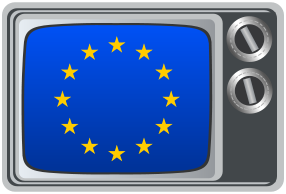In his speech about the prospects of the European idea given last week, the German President Joachim Gauck talked about the lack of communication and understanding within Europe. He identified the focus on national interests and considerations by media organisations in different European countries as the main problem for this communicative deficit. He argued that a common public space – a “European agora” – , established on the basis of a common language and a common European broadcaster is the desired solution.
Letting aside the naïve – at best – assumption that the use of a common language is a benign and depoliticised project, Gauck’s vision sounds paradoxically both outdated and rather too late a prescription for strengthening the European ideal. It echoes discussions about a European public sphere that went on for the largest part of the 1990s. The closest these discussions ever came to fruition is the rather unpopular EuroNews – a project that failed to capture the attention of the wider public no less because of its elitist assumptions about European audiences. How the common broadcaster Gauck envisions can differ from EuroNews and its premises is rather vague.
At the same time, if this vision is seen as a remedy for the current miscommunication that underlines the Eurocrisis and its public understandings, it is a proposition that comes rather late. The crisis has already left a deep mark on how national politics within Europe and the European project are understood. The recent example of the coverage of elections in Italy, focusing on populism as inherent in Italian politics, and its blow on the already “unstable Europe”, is a case in point.
While it is hard to point out what kind of media we need for a Europe that comes as close as possible to its ideal, it is certainly easier to criticise the types of media and media content that we do not need. Over the last years there has been a proliferation of media content that raves on the employment and exaggeration of national stereotypes. This kind of media undermines mutual understandings but also creates a division within Europe between worthy and unworthy victims of the crisis.
It is this stereotyping and lack of contextual information that could enable a real understanding of how other Europeans live – and suffer from the crisis – that should be the first point of concern, rather than a supranational media broadcaster that will ultimately not speak to anyone but European elites. And it seems prudent that this should be a matter of concern for national broadcasters rather than a centrally controlled top-down political project.




